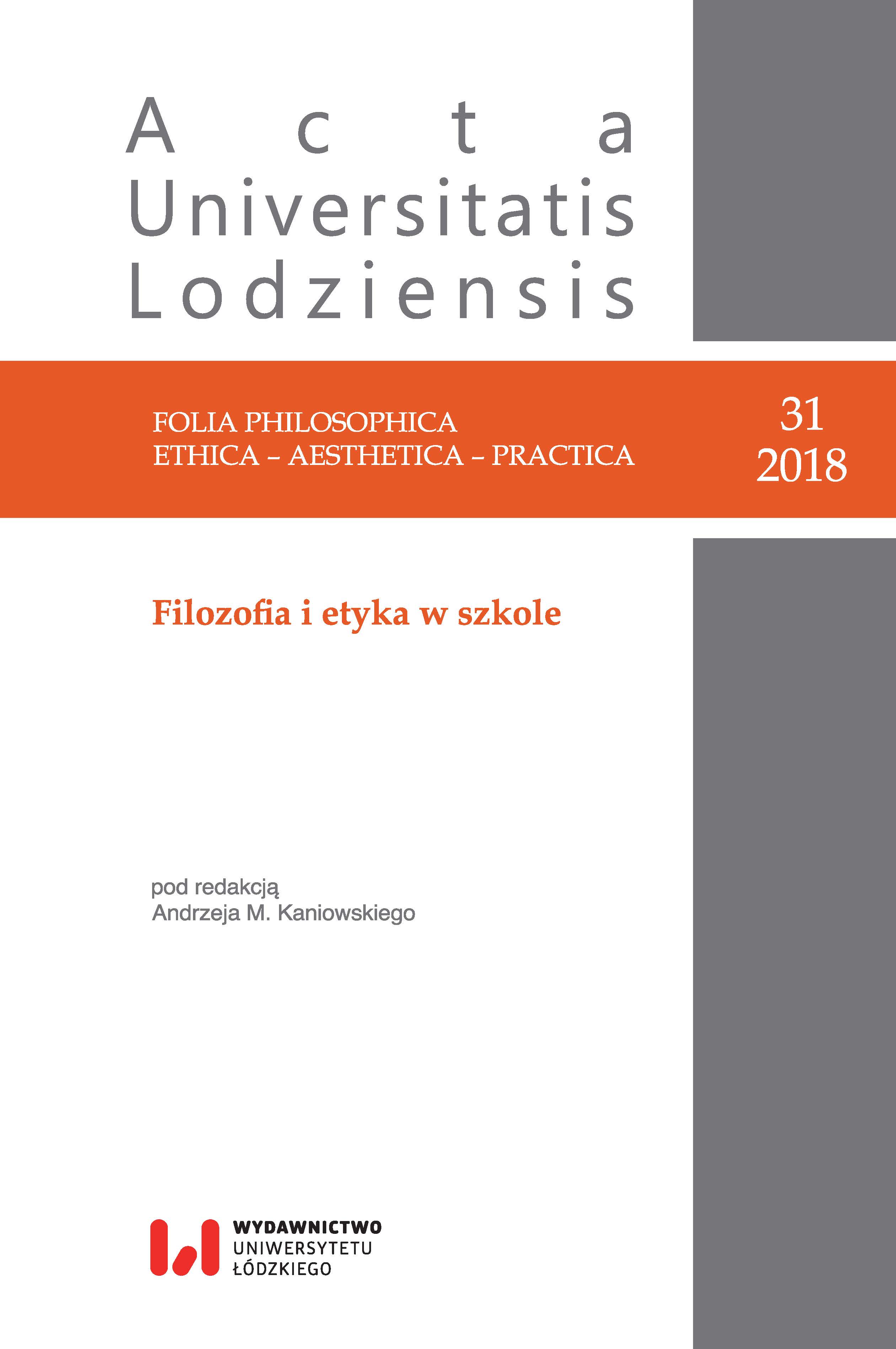Dialektyka oporu. Edukacja jako proces odkrywania znaczeń
Dialectics of resistance. Education as a process of discovering meanings
Author(s): Maria Łojek-KurzętkowskaSubject(s): Ethics / Practical Philosophy, Aesthetics
Published by: Wydawnictwo Uniwersytetu Łódzkiego
Keywords: education; resistance; moral autonomy; self-knowledge; Paul Standish; edukacja; opór; autonomia moralna; samoświadomość; Paul Standish
Summary/Abstract: AbstractSplitting up of educational practice into a value-free cognitive component and a cognition-free emotive component which dominated in modern account of education, has led to the serious misunderstanding of the subject and purpose of educational activities. Using the conceptual apparatus related to the exchange of services and developing the key competences has resulted in reduction of educational activities to economic factors. The purpose of this paper is to demonstrate the importance of the concept of resistance as a link connecting the cognitive and the emotional elements in teaching. The assumption is that developing moral autonomy by the students is the ultimate goal of educational activities. The first part of the paper analyses the concepts of self-knowledge, subjectivity and resistance in terms of G. W. F. Hegel’s "Phenomenology of the Spirit". The second section refers these concepts to the contemporary moral education. The linguistic concept of education developed by Paul Standish is presented; the focus is on the author’s view on the role of emotional factors in shaping the moral autonomy of the students. The concept of educational resistance turns out to be a necessary link connecting two important perspectives: the self-consciousness of a student and a discursive world, consisting of socially conditioned acts of speech. // Dominujący w nowoczesności podział praktyk edukacyjnych na dwa niezależne elementy: czynnik poznawczy i emocjonalny, doprowadził do nieadekwatnego pojmowania podmiotu i celu działań edukacyjnych. Stosowanie aparatu pojęciowego związanego z wymianą usług oraz kształtowaniem kompetencji kluczowych, spowodowało zredukowanie działań edukacyjnych do czynników ekonomicznych. Celem artykułu jest ukazanie znaczenia pojęcia oporu jako ogniwa łączącego element kognitywny i emocjonalny w nauczaniu. W tekście przyjęte jest założenie, iż osiągnięcie autonomii moralnej przez wychowanków uznaje się za cel działań edukacyjnych. Pierwsza część tekstu stanowi analizę pojęć samowiedzy, podmiotowości i oporu obecnych w Fenomenologii ducha Georga Wilhelma Friedricha Hegla. W drugiej części rozważań pojęcia te odniesione zostają do problematyki współczesnej edukacji moralnej. Przedstawiona zostaje językowa koncepcja edukacji autorstwa Paula Standisha, podkreślająca rolę czynnika emocjonalnego w kształtowaniu autonomii moralnej wychowanków. Pojęcie oporu edukacyjnego okazuje się być koniecznym ogniwem łączącym dwie istotne perspektywy: samoświadomość wychowanka i dyskursowy świat, składający się ze społecznie uwarunkowanych aktów mowy.
Journal: Acta Universitatis Lodziensis. Folia Philosophica. Ethica - Aesthetica - Practica
- Issue Year: 2018
- Issue No: 31
- Page Range: 41-59
- Page Count: 19
- Language: Polish

